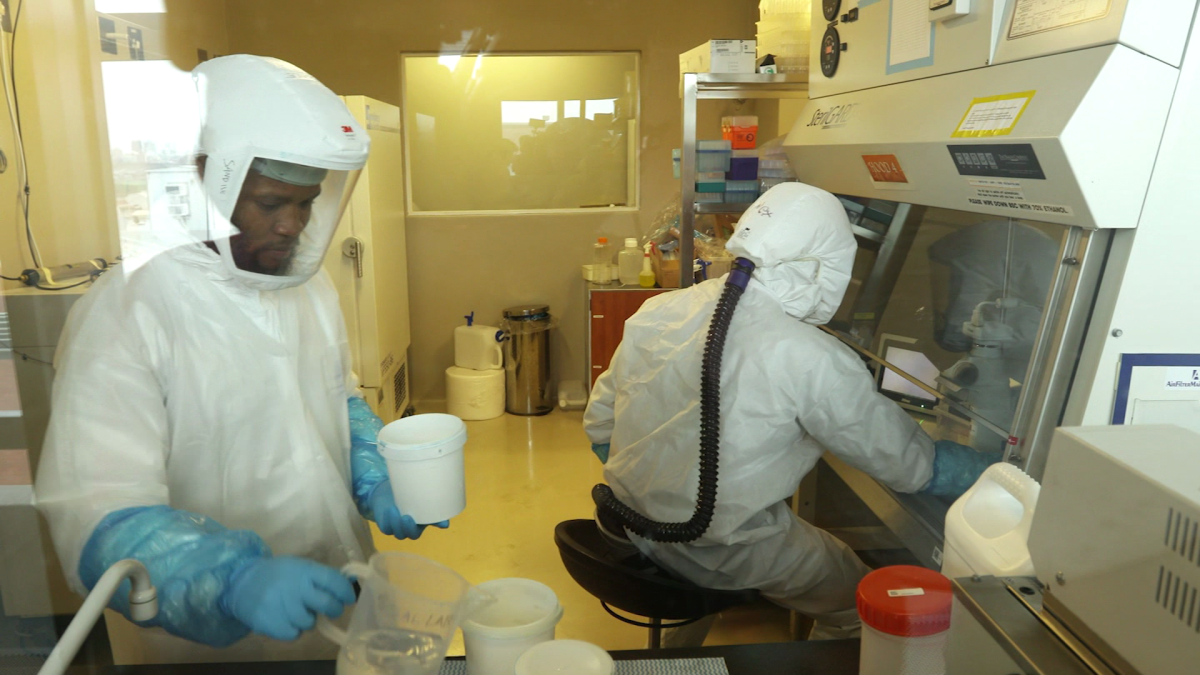Will I need a booster dose of the Pfizer vaccine?
0:40
(CNN) -
Genetics researchers who have been keeping an eye on new variants of the coronavirus say they have seen a worrying new lineage that carries many of the same characteristics as other strains, including alpha, beta and gamma.
The variant they are looking at, called C.1,2, has turned up in South Africa, as well as seven other countries in Africa, Asia and the Pacific, the researchers report.
They aren't sure if its constellation of mutations will make it more dangerous, but it does carry changes that have given other variants greater transmissibility and the ability to evade the immune system response to some degree.
One by one, all the variants of the new coronavirus identified so far
Having more mutations does not necessarily equate to more danger;
some mutations can weaken a virus and it is the combination of changes that affects whether a virus becomes more efficient.
An additional mutation could nullify the effects of another.
Are vaccines enough to protect against variants?
0:53
But the team, which includes virologist Penny Moore from South Africa's National Institute of Communicable Diseases, says they are keeping an eye on her.
"We are currently evaluating the impact of this variant on antibody neutralization after SARS-CoV-2 infection or SARS-CoV-2 vaccination in South Africa," they wrote in a report published online as preprint.
"This variant has been detected during the third wave of infections in South Africa since May 2021 and has been detected in seven other countries in Europe, Asia, Africa and Oceania. The identification of new variants of SARS-CoV-2 is commonly associated with new waves of infection ".
advertising
It's too early for the World Health Organization to designate the variant as a variant of interest or a variant of concern, so it does not have a Greek alphabet designation yet.
The WHO currently mentions four variants of concern, which are more easily transmitted, affect the severity of the disease or elude tests, vaccines or treatments: alpha or B.1,1.7;
beta or B.1,351;
gamma or P.1, and gelta or B.1,617.2.
Variants of interest, which have worrisome mutations and have caused clusters of diseases, include Eta or B.1,525;
Iota or B.1,526;
Kappa or B.1,617.1 and Lambda or C.37, according to the WHO.
Those vaccinated are not free of coronavirus and 1:51 variants
Maria van Kerkhove, covid-19 technical director for WHO, noted that very few people diagnosed with coronavirus have been found to be infected with variant C.1,2.
"To date, there are about 100 C.1,2 sequences reported globally, and the first reports were given by South Africa on May 21," he said on Twitter.
"At this time, C.1,2 does not appear to be increasing in circulation," he added.
He said WHO would provide updates on its website and through a press conference if that changes.
"The monitoring and evaluation of variants are continuous and of critical importance to understand the evolution of this virus, in the fight against covid-19 and adapting strategies as necessary," he added.
So far, the delta variant remains dominant, Van Kerkhove said.
Some variants, such as alpha and delta, have spread rapidly to become the dominant variants in much of the world.
Others have spread more regionally, including beta and gamma.
Others have seemed worrisome, but have caused only sporadic outbreaks.
CNN's Michael Nedelman contributed to this story
Coronavirus variants









